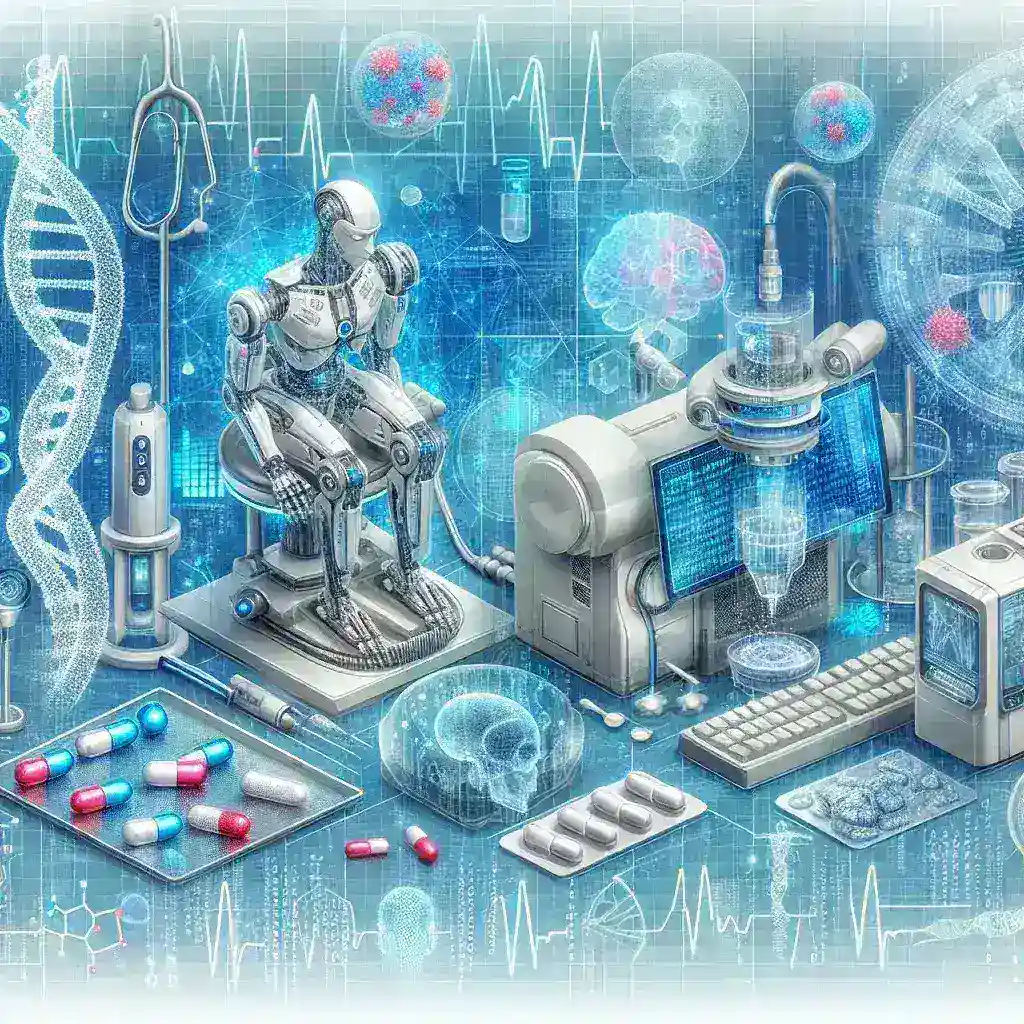In the modern landscape of healthcare, precision medicine has emerged as a revolutionary approach. Unlike traditional medicine, which often adopts a one-size-fits-all strategy, precision medicine tailors treatment plans based on individual genetic, environmental, and lifestyle differences. One of the key drivers behind this paradigm shift is Artificial Intelligence (AI). Leveraging advanced algorithms and vast datasets, AI is transforming precision medicine by enhancing diagnostic accuracy, personalizing treatments, and optimizing patient outcomes. This article delves into the pivotal role of AI in enhancing precision medicine and explores its future potential.
The Intersection of AI and Precision Medicine
AI and precision medicine naturally complement each other. While precision medicine requires extensive data analysis to understand the complexities of human biology, AI possesses the computational power and sophisticated algorithms necessary to process this data. By identifying patterns and correlations that would be nearly impossible for humans to detect, AI enables healthcare providers to make more informed decisions.
1. Enhanced Diagnostic Accuracy
AI’s diagnostic capabilities are one of its most impactful contributions to precision medicine. AI algorithms, particularly those based on deep learning and machine learning, can analyze medical images, genomic data, and patient records with unprecedented accuracy. For example:
- Medical Imaging: AI-powered tools can detect anomalies in radiographs, MRIs, and CT scans at a level of precision often exceeding that of human radiologists. These tools can identify early-stage cancers, neurological disorders, and cardiovascular anomalies, significantly improving early diagnosis and treatment outcomes.
- Genomic Analysis: AI facilitates the interpretation of complex genetic data, identifying mutations, gene expressions, and potential genetic disorders. This is crucial in pinpointing the root causes of diseases and predicting their occurrence.
2. Personalized Treatment Plans
A cornerstone of precision medicine is the customization of treatment plans for individual patients. AI enables this by considering a multitude of variables, including:
- Genetic Makeup: AI can analyze a patient’s genetic profile to determine which medications and dosages are most effective, minimizing adverse reactions and maximizing therapeutic benefits.
- Patient History: AI systems can integrate and analyze historical data to recommend personalized treatments. This includes previous medical conditions, treatment responses, and lifestyle factors.
- Predictive Modeling: AI uses predictive analytics to forecast disease progression and response to treatments. These models help clinicians adjust treatment plans proactively, enhancing patient care.
3. Optimizing Patient Outcomes
AI contributes to better patient outcomes in several ways:
- Real-Time Monitoring: AI can process data from wearable devices and sensors, providing real-time monitoring and alerts for patients with chronic conditions. This allows for timely interventions and adjustments in treatment plans.
- Drug Discovery: AI accelerates the drug discovery process by identifying potential drug candidates and predicting their efficacy and safety profiles. This leads to faster development of new therapies.
- Patient Engagement: AI-driven applications can enhance patient engagement by providing personalized health information, reminders for medication adherence, and virtual health assistants.
Challenges and Ethical Considerations
Despite its immense potential, the integration of AI in precision medicine comes with challenges:
- Data Privacy: Handling sensitive patient data requires robust security measures to prevent breaches and ensure confidentiality.
- Bias in AI Algorithms: AI algorithms can inherit biases from the data they are trained on, leading to inequities in healthcare outcomes. Efforts must be made to ensure that datasets are representative and algorithms are transparent.
- Regulatory Hurdles: The regulatory landscape for AI in healthcare is still evolving. Establishing clear guidelines and standards is crucial for the safe and effective deployment of AI technologies.
The Future of AI in Precision Medicine
The future of AI in precision medicine looks promising, with several trends on the horizon:
- Collaborative AI: Integrating AI systems that collaborate with healthcare professionals to provide comprehensive care.
- Quantum Computing: The advent of quantum computing promises to further enhance AI’s capabilities in processing complex biological data.
- Global Health Initiatives: AI can play a pivotal role in global health, addressing disparities and improving access to precision medicine worldwide.
In conclusion, AI is revolutionizing precision medicine by enhancing diagnostic accuracy, personalizing treatments, and optimizing patient outcomes. As technology continues to evolve, the synergy between AI and precision medicine promises a future where healthcare is more personalized, efficient, and effective.

